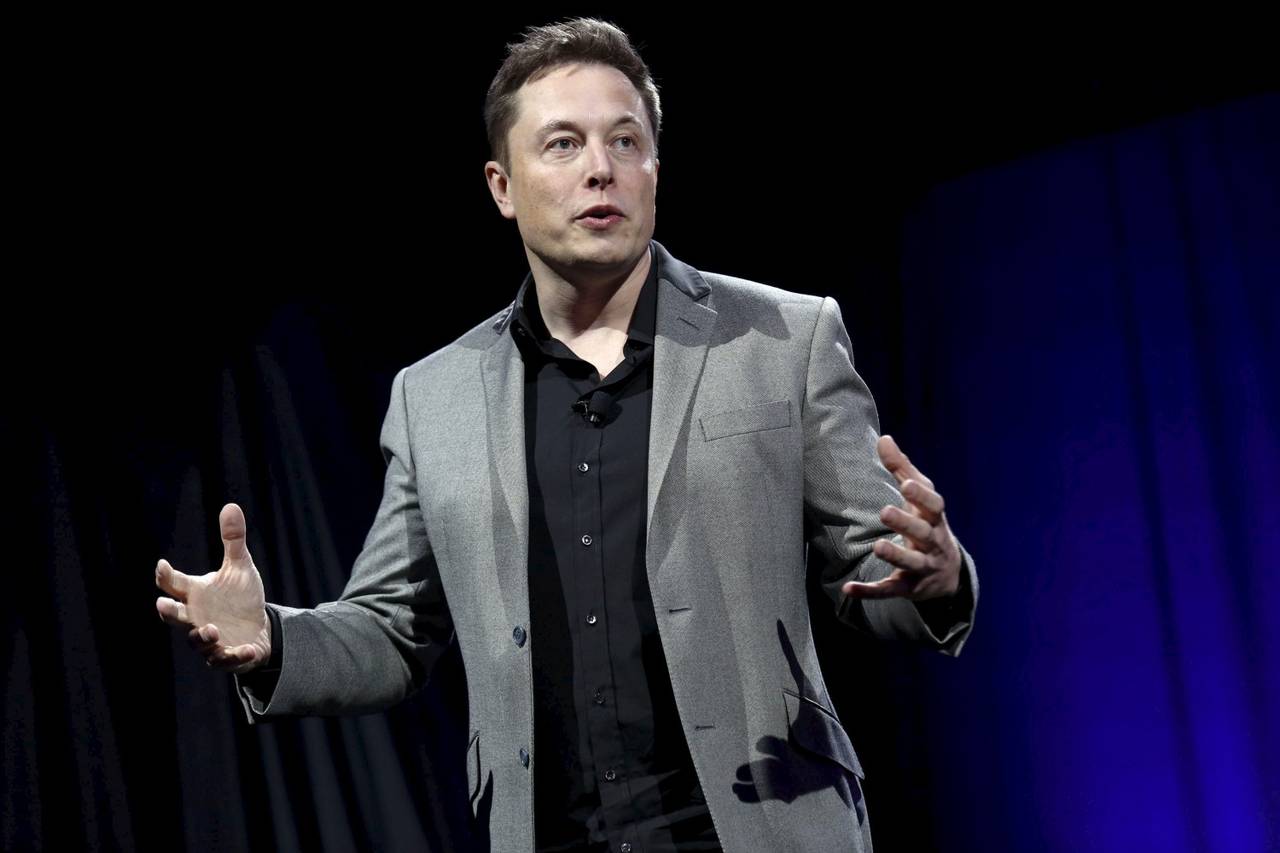Introduction to Elon Musk’s Wealth
Elon Musk, the CEO of multiple groundbreaking companies such as SpaceX, Tesla, and Neuralink, has garnered significant attention not only for his ambitious projects but also for his extraordinary wealth. As one of the richest individuals globally, Musk’s financial status speaks volumes about his influence in various industries, including automotive, aerospace, and technology. His innovative approach and relentless drive have propelled him into the spotlight, making his earnings a topic of interest for many. The pursuit of understanding how much Musk earns in an hour provides insights not only into his monumental wealth but also into the broader implications of wealth accumulation in the modern economy.
To comprehend Musk’s hourly earnings, one must first appreciate the factors contributing to his impressive net worth. A considerable portion of his wealth is derived from equity stakes in his companies, particularly Tesla, whose stock price has seen dramatic increases over the years. Consequently, fluctuations in Tesla’s stock price significantly impact Musk’s net worth. Additionally, his ventures into renewable energy, space exploration, and advancements in artificial intelligence demonstrate a diversified investment strategy that has yielded substantial returns, further amplifying his financial growth.
Understanding Musk’s earnings is not just about numbers; it reflects a broader narrative of entrepreneurship, innovation, and the value of visionary leadership in today’s fast-paced world. By examining his financial trajectory, one can glean insights into the dynamics of wealth creation and the importance of innovative thinking in driving economic progress. Moreover, this exploration of Musk’s wealth encourages a discussion about the societal implications of extreme wealth concentration and its effects on economic disparities. Ultimately, grasping Musk’s financial success offers a lens through which to assess the changing landscape of wealth and power in our society.
Elon Musk’s Net Worth: A Snapshot
As of October 2023, Elon Musk’s net worth stands at approximately $240 billion, making him one of the wealthiest individuals in the world. His financial standing is heavily influenced by the value of his stakes in several prominent companies, most notably Tesla and SpaceX. The fluctuation of Musk’s net worth is primarily tied to the stock market performance of Tesla, where he serves as the CEO and product architect. Over the last year, Tesla’s stock has exhibited significant volatility, impacting Musk’s wealth considerably. Major developments, product launches, and changes in investor sentiment all contribute to this volatility.
In addition to Tesla, Musk’s involvement with SpaceX further underscores his diverse financial portfolio. SpaceX has garnered attention for its groundbreaking advancements in space technology and commercial launches, leading to substantial investments that have raised its estimated valuation to around $137 billion. Furthermore, Musk has invested in other ventures like Neuralink and The Boring Company, augmenting his overall net worth. These companies focus on innovative solutions in neurotechnology and underground transportation, respectively, positioning Musk as a visionary in various sectors.
The dynamic nature of Musk’s wealth is accentuated by the regular changes in stock prices and investment values across his enterprises. For instance, fluctuations in Tesla’s stock price can cause considerable shifts in Musk’s net worth within a single trading day. Consequently, while he is a billionaire by conventional standards, the exact figure representing his net worth remains fluid, reflecting an ongoing saga of innovation and investment that characterizes Musk’s professional life.
The Calculation of Hourly Earnings
To accurately assess how much Elon Musk makes in an hour, one must consider multiple facets of his income, such as salary, stock options, and potential dividends. Musk’s substantial wealth is not primarily derived from a traditional salary but rather from equity compensation tied to his roles in companies like Tesla and SpaceX. This complicates the calculations as his earnings fluctuate significantly based on market conditions.
Firstly, let’s examine Musk’s annual salary. According to the information available, Tesla reported a nominal base salary of $23,760 for Elon Musk in recent years. While this figure seems relatively low compared to other CEOs, it is crucial to recognize that Musk’s primary compensation comes from stock options and bonuses rather than standard pay.
Next, one must factor in the stock options Musk has received. Tesla’s compensation structure granted Musk stock options that, depending on company performance and valuation, could yield substantial sums. For example, if Musk’s options escalate in value because of Tesla’s rising share prices, this could potentially translate into millions of dollars in earnings in a single year. A rough estimate can be derived by evaluating the amount of stock awarded during a specific period and adjusting it to reflect a typical year.
Another important aspect to include in these calculations is the dividends from any equity holdings. While Tesla has not traditionally paid dividends, Musk’s diversified investments may yield returns from other shares he possesses. Therefore, when formulating a comprehensive picture of Musk’s hourly earnings, one should consolidate these aspects—salary, stock options, and dividends—into a detailed formula.
The final formula to consider when calculating his hourly earnings would take his net worth and divide it by the number of hours worked within a given timeframe, adjusted for any significant changes in his stock portfolio. By using this structured approach, one can better comprehend the complexities underlying Elon Musk’s impressive earnings profile.
Salary vs. Wealth Creation
When examining the financial landscape of billionaires such as Elon Musk, it is crucial to differentiate between traditional salary and the broader scope of wealth creation. Musk, known primarily as the CEO of Tesla and SpaceX, has a relatively modest official salary compared to the astronomical value of his assets. For instance, Musk’s reported annual salary at Tesla is approximately $56,000. This figure, while significant in the traditional sense, pales in comparison to the wealth he generates through stock options and equity ownership.
The true mechanism for Musk’s wealth accumulation lies chiefly in the appreciation of his stock holdings. Over recent years, the market value of Tesla has surged, significantly elevating the worth of Musk’s shareholdings. As of late 2023, Musk’s net worth is predominantly tied to the fluctuating stock prices of the companies he leads. This reflects a broader trend observed among billionaires: their fortunes are frequently derived from investments and the appreciation of assets rather than conventional salary structures.
Moreover, it is essential to consider that wealth creation isn’t just limited to the rise in stock prices. Musk’s investments across various sectors, including renewable energy and artificial intelligence, also contribute to his net worth. These strategic decisions have not only enhanced his financial portfolio but have also positioned him as a pivotal figure in critical industries shaping the future.
While a billionaire’s salary may seem substantial on the surface, it is essential to recognize that the concept of wealth encompasses much more. In Musk’s case, his real earnings can be perceived through the lens of asset growth rather than salary alone. This dynamic serves as a reminder that the wealth accumulation of billionaires is often more complex than conventional metrics suggest.
The Role of Tesla and SpaceX in Musk’s Earnings
Elon Musk’s financial success is largely intertwined with the performance of his companies, Tesla and SpaceX. As the CEO of Tesla, Musk is at the forefront of the electric vehicle revolution, a sector experiencing rapid growth. Tesla’s stock has seen significant appreciation over the years, largely due to increasing sales, technological advancements, and a strong global brand reputation. Each time Tesla exceeds its production or delivery targets, its shares often respond positively in the market, benefiting Musk directly, as a substantial portion of his wealth is tied to his holdings in the company. The surging market valuation of Tesla has positioned Musk as one of the wealthiest individuals globally.
SpaceX, on the other hand, plays a crucial role in Musk’s financial picture through lucrative contracts and innovative advancements in space exploration. The company has secured numerous contracts with NASA and private corporations for launching satellites and resupplying the International Space Station. The successful development of the Starlink project aims to provide high-speed internet globally, creating additional revenue streams that enhance SpaceX’s valuation and, in turn, Musk’s portfolio. As SpaceX continues to forge ahead with ambitious projects, its growing market presence further bolsters Musk’s net worth.
Musk’s earnings are significantly affected by how these two companies perform in their respective markets. With Tesla’s continuous push toward vehicle production and sustainability, alongside SpaceX’s pioneering missions, Musk’s financial gain is closely linked to these enterprises. This synergy between Musk’s leadership roles and the successful operations of Tesla and SpaceX demonstrates how integral these companies are to his overall earnings, the fluctuations in which can impact his wealth on an hourly or daily basis.
Comparative Analysis: Musk’s Earnings Vs. Other Billionaires
When analyzing the earnings of Elon Musk in comparison to other billionaires, such as Jeff Bezos, Bernard Arnault, and Mark Zuckerberg, one can observe significant disparities rooted in their respective industries and strategies. Elon Musk, known for his leadership at Tesla and SpaceX, has captured attention not only for his innovative ventures but also for his remarkable wealth accumulation, which is often tied to the stock market’s performance of these companies.
Elon Musk’s net worth varies significantly due to Tesla’s stock price fluctuations. For instance, recent estimates suggest that Musk can earn upwards of $3 billion in an hour during peak stock performance, positioning him among the highest earners globally within the technology and automotive sectors. This figure starkly contrasts with Jeff Bezos, the founder of Amazon, whose earnings potential is influenced by e-commerce growth rates and retail market trends. While Bezos’ wealth is exceedingly large, it is not always as dramatically volatile as Musk’s due to the steadier nature of retail compared to tech-driven markets.
Similarly, Bernard Arnault, a key figure in the luxury goods sector through LVMH, exhibits wealth accumulation that is dependent on consumer behavior and luxury market dynamics. His earnings can fluctuate, particularly during economic downturns when luxury spending decreases. Nevertheless, Arnault’s wealth also places him in the exclusive billionaire club, underscoring the varying environments that impact these individuals’ fiscal landscapes.
Mark Zuckerberg’s financial trajectory further illustrates this diversity. As the co-founder of Facebook (now Meta Platforms, Inc.), his earnings are significantly impacted by the advertising market and social media trends. Zuckerberg’s financial performance showcases how tech industry developments can propel wealth, yet his hourly earnings can reflect market volatility similar to Musk’s experiences.
This comparative analysis reveals that while all four billionaires have achieved immense success, their earnings per hour are shaped by differing industries, market dynamics, and individual business strategies. Understanding these nuances is crucial for a broader comprehension of wealth accumulation among the world’s richest individuals.
Public Perception of Musk’s Wealth
The wealth of Elon Musk, one of the world’s richest individuals, often evokes polarized opinions among the public. Discussions surrounding his earnings, particularly how much he makes in an hour, frequently intersect with broader societal issues, such as income inequality and the responsibilities of billionaires. Many view Musk’s financial acumen as a testament to his innovation and entrepreneurial spirit, particularly in the realms of electric vehicles and space travel. However, his staggering wealth also raises questions about the disparities in income across various economic strata.
In recent years, there has been a growing discourse around income inequality, with figures like Musk representing the extreme wealth accrued in a global economy that leaves many struggling. Critics argue that such wealth concentration is detrimental to societal equity, emphasizing that while Musk accumulates significant resources, millions are unable to meet basic needs. This perspective compels many to scrutinize not only his earnings but also the broader implications of extreme wealth accumulation in society.
In addition to income inequality discourse, Musk’s financial decisions, including his stance on taxes, have attracted scrutiny. He has been known for his unconventional approaches to taxation, making headlines for remarks that suggest he believes in minimal taxation of billionaires. This sentiment resonates with some members of the public who view it as a pressing issue. The perception that billionaires can navigate tax systems in ways that average citizens cannot fosters frustration and resentment among those paying higher percentages of their incomes in taxes.
Ultimately, the public sentiment surrounding Elon Musk’s wealth encapsulates a mix of admiration for his achievements and criticism of the socio-economic implications of such vast earnings. This duality reflects a broader societal tension regarding the role and responsibility of billionaires in addressing the challenges that stem from income inequality.
Future Projections for Musk’s Earnings
As we analyze the future projections of Elon Musk’s earnings, several factors must be considered, including prevailing trends in technology, market dynamics, and Musk’s anticipated business ventures. Musk, currently the CEO of multiple high-impact companies such as Tesla and SpaceX, has consistently demonstrated an ability to leverage technological innovations for substantial financial gain. This trend is expected to continue as advancements in electric vehicles, space exploration, and sustainable energy become increasingly prominent.
The ongoing growth in the electric vehicle market positions Tesla favorably for enhanced profitability. Industry analysts predict that as global demand for electric vehicles rises, Musk’s earnings from Tesla could significantly increase. Furthermore, the rollout of new products such as the Cybertruck and advancements in battery technology are likely to contribute to revenue surges, potentially translating into higher hourly earnings for Musk.
On the other hand, market fluctuations can introduce challenges. The tech sector is notorious for volatility, and external economic conditions—such as rising inflation rates and supply chain disruptions—may impact Musk’s companies. Additionally, competition from other electric vehicle manufacturers and advancements in alternative energy sources may also affect Tesla’s market share, influencing Musk’s income.
Moreover, Musk has several upcoming ventures in the pipeline, including SpaceX’s Starship missions and possible expansions into neurotechnology through Neuralink. These endeavors may prove lucrative, further enhancing Musk’s earnings potential. However, they also carry inherent risks and uncertainties tied to regulatory hurdles and technological viability.
In conclusion, while projections indicate that Elon Musk’s earnings will likely see considerable growth over the coming years, the fluctuating nature of the market and emerging challenges present a complex landscape. Keeping a close eye on industry trends and Musk’s strategic decisions will be essential for understanding his financial trajectory moving forward.
Conclusion: Understanding the Economic Impact of Musk’s Wealth
Throughout this exploration of Elon Musk’s earnings, it has become evident that his wealth extends far beyond mere numbers; it significantly influences the economy, society, and the technological landscape. As one of the wealthiest individuals globally, Musk’s financial achievements merit examination not just for their magnitude but also for the broader implications they embody. His wealth, generated from ventures such as Tesla and SpaceX, contributes substantially to the innovation driving various industries forward.
Musk’s financial success has a ripple effect, impacting job creation and investment in emerging technologies. Companies he leads and invests in push the boundaries of electric vehicles, renewable energy, and space exploration, necessitating a skilled workforce and prompting shifts in market dynamics. As organizations compete to match or surpass Musk’s initiatives, they fuel an environment ripe for advancements that benefit society as a whole. Therefore, understanding his economic footprint necessitates recognizing the ways in which his monetary pursuits translate into tangible job opportunities and technological breakthroughs.
Moreover, the wealth gap Musk’s financial status illustrates raises critical questions about income distribution and socioeconomic disparities. While his innovations can spark progress, they also illustrate the growing divide between the ultra-wealthy and the average citizen. This reality encourages a dialogue about wealth equity and the responsibility of billionaires to contribute positively to society. Ultimately, as we assess Musk’s wealth and its economic implications, we must consider both the opportunities and challenges presented by such significant financial standing.
In conclusion, Elon Musk’s earnings not only reflect his personal success but also serve as a lens through which we can evaluate broader economic, social, and ethical implications in the world today. The interplay between wealth and progress is a complex topic that invites further contemplation and discussion.

We share information about current trends and stories of people all around the world.



